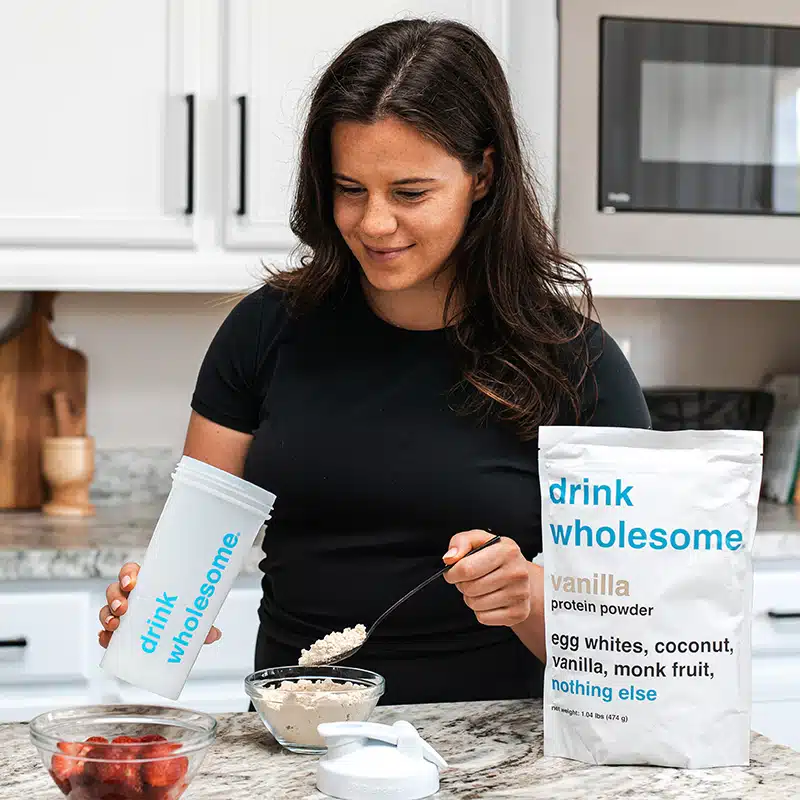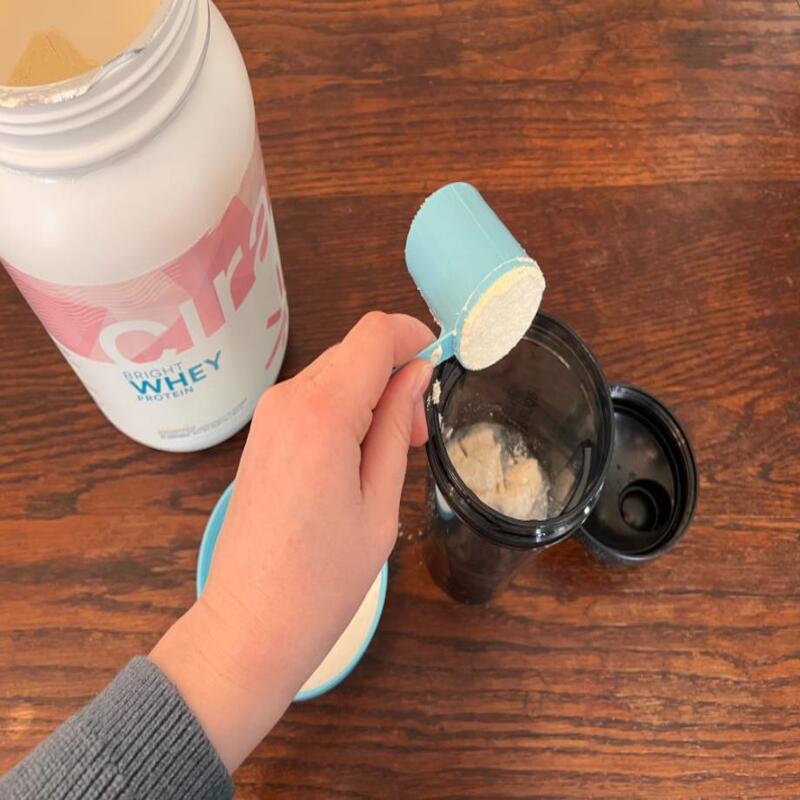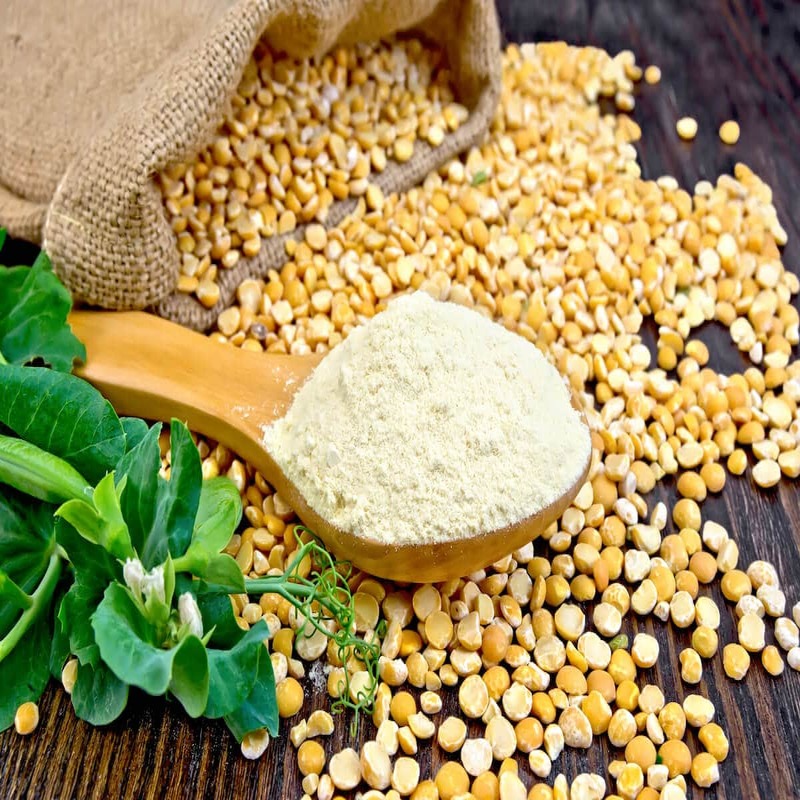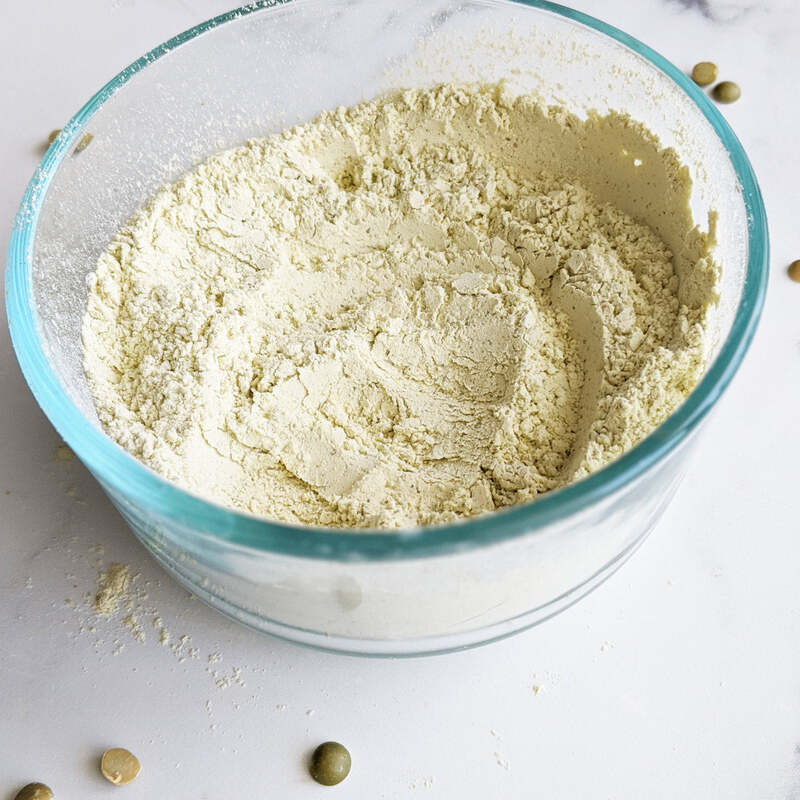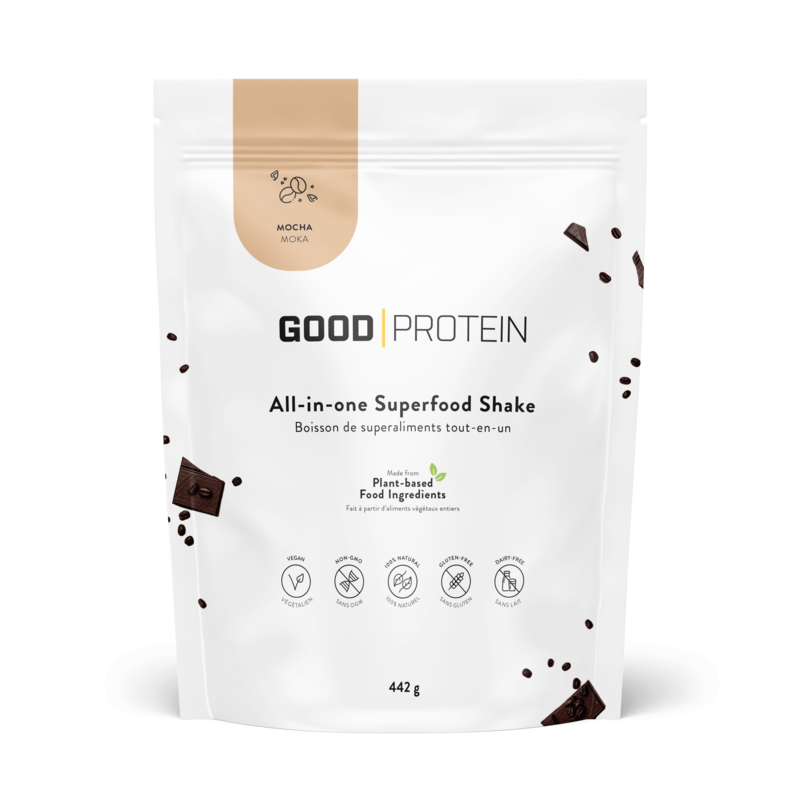Determining Your Protein Requirements
Finding your daily protein needs is key for health and fitness. How many scoops of protein powder a day? Start by considering your weight, age, and activity. For less active adults, experts suggest 0.8 grams per kilogram of weight. But if you’re active or building muscle, you may need more – from 1.2 to 2.0 grams per kilogram is common for athletes. Remember, this is total daily intake from all sources.
To figure out your own needs, multiply your weight by your protein target. A fitness app or online calculator can help. Don’t forget, protein comes from food too – meat, dairy, beans, and nuts all add up. If your diet falls short, that’s where supplements like protein powder can fill the gap. Aim for balance – mix whole foods with supplements for the best results. And if you’re unsure or have health concerns, chat with a dietitian to get personalized advice.
Everyone’s protein needs are unique. Find your magic number to fuel your body right, whether you’re on a health kick or powering through workouts. Get enough, but not too much – your body will thank you for it.
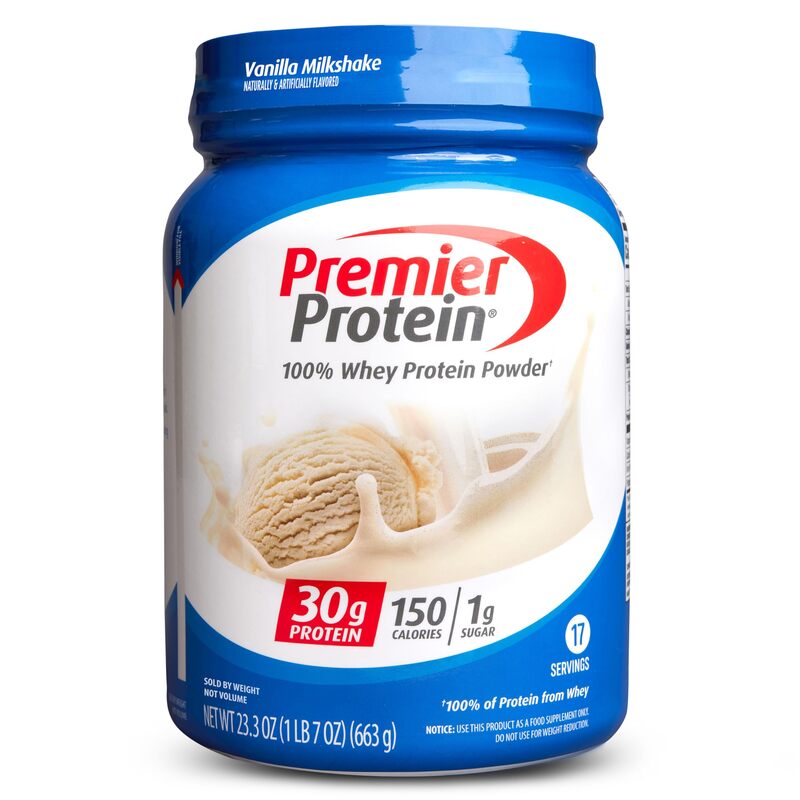
Evaluating Protein Content in Different Supplements
Choosing the right protein supplement hinges on understanding the protein content they offer. It’s essential to scrutinize each product for its protein yield per scoop to tailor your protein intake accurately.
- Identify Protein Type: Different supplements boast various types of protein, such as whey, casein, or plant-based alternatives. Each has unique absorption rates and benefits.
- Check Serving Sizes: A standard scoop size may vary between 20 to 30 grams, impacting the protein amount you consume. Always read labels for precise scoop measurements.
- Assess Protein Per Serving: Brands differ in the actual protein delivered per scoop. Look for the grams of protein offered to ensure you meet your daily goals.
- Account for Purity: High-quality protein powders have greater ‘protein-by-weight’ ratios, meaning more protein and less filler per serving.
- Factor In Daily Diet: Before supplementing with protein powder, analyze how much protein your regular meals provide to avoid unnecessarily high protein intake.
When evaluating supplements, strive for a balance between your total dietary protein sources and your protein supplementation. This ensures a well-rounded approach to meeting your dietary needs and enhances overall wellness without over-reliance on powdered supplements.
Whole Foods vs. Protein Supplements
When planning your diet, it’s crucial to balance whole foods and protein supplements. Whole foods offer a broad range of nutrients, including vitamins and minerals that supplements usually lack. They should be the primary source of your daily protein. Foods like chicken, tofu, beans, and nuts are not only rich in protein but also provide fiber and other essential nutrients.
Protein supplements, on the other hand, are convenient. They help fill dietary gaps, especially on busy days or post-workout. However, relying solely on these can lead to missing out on the nutritional benefits of whole foods. Supplements are not a complete substitute for a varied diet.
Ideally, use protein powders as an addition to, not a replacement for, whole foods. For instance, if you fall short of your protein targets with diet alone, adding a scoop of protein powder can help meet your requirements. This strategy ensures you’re not overdoing it with supplements and still obtaining benefits from natural food sources.
Always remember, no amount of supplementation can provide the vast array of nutritional benefits that come from consuming whole, unprocessed foods. Strive to get the bulk of your protein from your meals and consider protein powder as a supportive tool to boost your intake as needed.
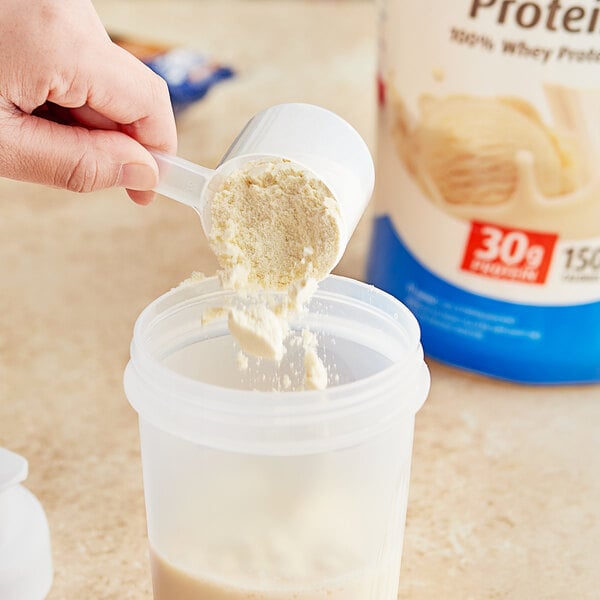
Understanding Servings: How Much is In a Scoop?
When incorporating protein powder into your diet, it’s crucial to grasp how much protein is actually in a scoop. This knowledge can help you align your intake with your nutritional goals.
- Measure the Scoop: Protein powders vary in scoop size, which can range from 20 to 30 grams. Check the product label to see the exact scoop volume.
- Protein per Scoop: The amount of protein per scoop also differs among brands. Typically, one scoop can provide anywhere between 20 to 25 grams of protein, but always consult the nutrition facts label.
- Serving Size: Understand that a serving size could be different than a scoop size. Some powders might suggest two scoops of protein powder per serving, doubling the protein content.
- Precision in Portions: Use the scoop provided by the protein powder brand to measure your servings accurately. For smaller or larger doses, invest in a kitchen scale for precision.
- Tailor Your Intake: Depending on your diet, weight, activity level, and goals, you may need just a portion of a scoop or multiple scoops of protein powder. Factor in your daily dietary protein sources before adding protein powder.
Getting the right protein serving size is simple if you take the time to understand what’s in a scoop. By doing so, you’ll ensure optimal health and fitness results while avoiding the pitfalls of overconsumption.
Protein Powder Dosage for Different Fitness Goals
Whether you’re aiming to lose weight, gain muscle, or simply maintain a healthy lifestyle, the amount of protein you need can vary. It’s important to adjust your protein powder intake according to your fitness goals, which include:
- Weight Loss: If you’re reducing calorie intake for weight loss, a single scoop of protein powder can help you feel full and preserve lean muscle, typically after your workouts.
- Muscle Gain: Building muscle requires more protein. Two scoops of protein powder post-workout could be beneficial, alongside protein-heavy meals throughout the day.
- Maintenance: For those looking to maintain their current physique, one scoop, usually post-exercise, is often sufficient to repair and build muscle fibers.
Remember, these guidelines are general. Individual needs depend on factors like personal body composition, metabolic rate, and specific training regimens. To find your exact protein need, consider using a protein calculator or consulting with a nutrition expert.
Always integrate protein powder into a balanced diet. Don’t let it replace whole foods. Mix it into shakes, yogurts, or oatmeal for diversity. And above all, listen to your body’s response to your protein intake and adjust as necessary for optimal health and performance.
Daily Protein Intake for Vegans and Vegetarians
Navigating daily protein needs as a vegan or vegetarian requires attention to detail. Unlike animal proteins, plant-based sources often contain less protein per serving. Ensure you consume a variety of protein-rich plants to meet your needs. Think lentils, chickpeas, tofu, and quinoa. Each offers unique essential amino acids necessary for optimal health.
For active vegans and vegetarians, protein powders can be helpful. They can supplement dietary intake, especially after workouts. Look for powders made from pea, rice, or hemp proteins. They are excellent for muscle recovery and growth. Aim to get most of your protein from whole foods for the full range of nutrients though.
Serving sizes for vegan protein powders may differ from whey-based supplements. Check labels for protein content per scoop. Adjust servings based on your calculated daily requirements. Some may need one scoop, while others might need two. Use a kitchen scale for precise measurements if necessary.
Remember, it’s not just about the quantity of protein, but also quality. Eating a wide array of plants ensures you get all essential amino acids. When choosing powders, select those with minimal additives and fillers. A clean supplement can support your fitness goals without extra unwanted ingredients.
Finally, consider any unique dietary restrictions or needs you have. Consulting a dietitian can provide valuable personalized advice. They can help set up a plant-based diet that ensures adequate protein and nutrient intake. This can be crucial for long-term health and fitness.
Risks of Overconsumption of Protein Powder
Excess protein intake can cause problems. Too much may harm kidneys or lead to bone loss. It could also add unwanted fat. High protein diets might also cause digestive issues. Overuse of powder can mean less whole food, which is not ideal.
Consuming more than you need won’t boost gains. Bodies can’t use excess protein for muscle. They store it as fat or pass it out. Balanced diets are better than too much protein powder.
Staying within recommended guidelines is important. Check labels and avoid too many scoops of protein powder. Your body will use the right amount and discard the rest. So, more isn’t always better.
Always keep in mind that moderation is key. Balance your protein sources for good health. Stick to your daily protein needs and stay healthy.

The Role of Protein in Muscle Synthesis and Recovery
Protein plays a critical role in muscle repair and growth. Post-workout, muscles need protein to heal and become stronger. This process, called muscle protein synthesis, relies on amino acids from protein. These building blocks help repair exercise-induced damage and promote muscle growth.
Adequate protein intake supports recovery, reduces muscle soreness, and improves strength over time. For those who exercise regularly, getting enough protein is essential for progress and performance. Simply put, protein helps muscles recover and grow after a workout.
To maximize muscle synthesis, consume protein soon after exercising. This can help kick-start the recovery process. One scoop of protein powder post-exercise might be enough for some. However, others may benefit from two scoops, depending on their specific fitness goals, body weight, and dietary intake.
It’s key to match protein intake with actual needs. Over-consuming protein provides no added benefits to muscle growth. Moreover, too much can lead to health issues or unnecessary calorie consumption. Thus, it is crucial to assess personal protein requirements and adjust intake accordingly.
In short, protein supports muscle recovery and synthesis. It’s vital to consume the right amount for individual needs, especially after physical activity. By doing this, you encourage better muscle repair, less soreness, and improved performance.
Alternatives to Protein Powders for Busy Lifestyles
For those with hectic schedules, finding time for proper nutrition can be tough. Protein powders are a great help, but they aren’t the only option. Here are some alternatives that can fit into your fast-paced life:
- Ready-to-Drink Shakes: Grab-and-go shakes are convenient. They offer a quick protein boost without any prep time.
- Protein Bars: These are easy to stash in your bag. They give a protein punch when you’re on the move.
- Greek Yogurt: High in protein, it’s a quick snack. You can pair it with fruit or nuts.
- Nuts and Seeds: A handful of almonds or pumpkin seeds can provide a fast, protein-rich snack.
- Cheese Strings or Slices: These are simple to carry around. They can help meet your protein needs.
- Jerky: Meat or vegan jerky is portable and packed with protein.
Choose options that best match your diet and lifestyle. These can keep you fueled when there’s no time for mixing up a protein shake.
Consulting Professionals for Personalized Protein Intake Plans
For a tailored approach to protein, consider professional guidance. Nutritionists and dietitians can offer personalized plans. They’ll assess your lifestyle, goals, and needs to determine the right protein amount. This ensures you get the benefits without overdoing it.
- Assess Your Needs: Experts look at your age, weight, activity level, and health goals.
- Create a Plan: They’ll devise a plan with the right protein types and amounts for you.
- Adjust as Needed: Plans can change based on progress, preferences, or lifestyle shifts.
By working with a professional, you can perfect your intake. This balances supplements with whole foods for optimal health. It also helps you avoid too much protein which can cause issues. With this support, you get exactly what you need for your fitness journey. Reach out to a certified expert today.
